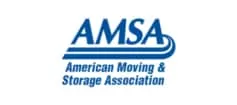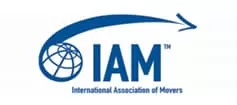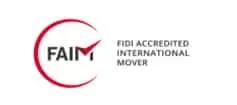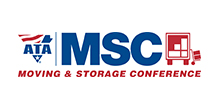An industrial move refers to the relocation of large-scale operations, equipment, and facilities, typically within manufacturing, warehousing, or production sectors. Unlike residential or commercial moves, industrial relocations require specialized planning, resources, and expertise due to the complexity and scale of the operations involved. In this article, we will explore what an industrial move entails, its unique challenges, the process involved, and why it is essential to work with experienced professionals for a successful transition.
Industrial moves often involve the transportation of heavy machinery, assembly lines, inventory, and entire warehouses. This process may be necessary due to various reasons, including business expansion, facility upgrades, changes in operational strategies, or even the need for more efficient locations. Unlike smaller moves, industrial relocations can encompass several logistical challenges that require a detailed understanding of both the current and new locations.
The equipment involved in an industrial move can vary significantly in size and weight. For instance, a factory might require the relocation of heavy-duty machinery like conveyor belts, forklifts, and industrial ovens, each requiring careful disassembly, transport, and reassembly. Additionally, many industries must adhere to safety regulations and standards during the move, adding another layer of complexity.
Several challenges can arise during an industrial move, making it crucial to approach the process with careful planning:
The process of an industrial move typically involves several key steps:
Given the complexity of industrial moves, partnering with a professional moving company specializing in industrial relocations is invaluable. These experts can help businesses navigate the challenges involved, ensuring the move is completed efficiently and safely. Their experience means they understand the nuances of moving heavy equipment, adhering to regulatory requirements, and minimizing downtime, ultimately leading to a smoother transition and less operational disruption.

At Hollander Storage & Moving, we pride ourselves on being a trusted name among Chicago moving companies, known for our exceptional service and reliability. Our team of experienced professionals understands the unique challenges of moving in the vibrant city of Chicago. We tailor our services to meet your specific needs, whether you’re relocating your home or business.
As one of the top moving companies in Chicago, we prioritize customer satisfaction above all else. Our transparent pricing structure means you won’t encounter any hidden fees, and we work closely with you to create a customized moving plan that fits your timeline and budget. From packing and loading to transportation and unpacking, our dedicated team is here to support you every step of the way.
Ready to make your move with confidence? Contact Hollander Storage & Moving today for a free quote and let our expert team handle all your moving needs. Don’t wait Contact us today—your smooth transition starts here!
Use this form to request a call back, or call us at 866-754-0907
Great experience with Hollander’s crew: Dominic R, Alex P, and Chris C. They were contracted (military move) to deliver some of our things that had been packed up and stored for a year, in a different location. They were professional and worked without complaints in the heat, placing our items carefully where I requested. They maneuvered a large, deep freezer down a tight staircase easily. They were thorough in helping me check to make sure all our things were accounted for, since it had changed locations/companies a few times before making it here. They were so helpful and courteous – I am very happy with my experience and would definitely recommend them!
-Timm.
The driver was the head of the crew, and he was on top of everything. He made the experience working with Hollander Moving a pleasure. We have used others before but it was our first time using Hollander. Everything turned out great.
-Eric Y..
Every employee I worked with was courteous, professional, and exceedingly competent. I was nervous about the packing and long distance move (from Illinois to New Mexico, October 2009) and Hollander helped make the move as smooth as possible. Not a thing was damaged or broken
-Kay S..
I would recommend Hollander to any company thinking about switching vendors, and any family making a move. A Hollander rep even stopped by my new place when they were unloading just to check on things.
Wonderful service – first class!
-Julia C..
Everything Hollander has done was over the top. It was courteous people, polite, caring. Their friendliness was over the top. There was one member of the crew who’d been a friend for 30 years, and the rest was family. I couldn’t say enough about them.
-Jerry M..
I recently moved from Chicago to Tampa and expected a few road bumps along the way but was pleasantly surprised when everything from loading to delivery was flawless. Everyone I came in contact with was very professional and knowledgable. I highly recommend Hollander Moving and Storage as they are a class act.
-Sandy C..
This move envolved packing and delivery to four different destinations. Attention to detail and coordination were vital and effectively executed by Tony R driver and his crew. Ardene did a great job coordinating everything. The entire group were both extremely pleasant and efficient.
-Gary T..












